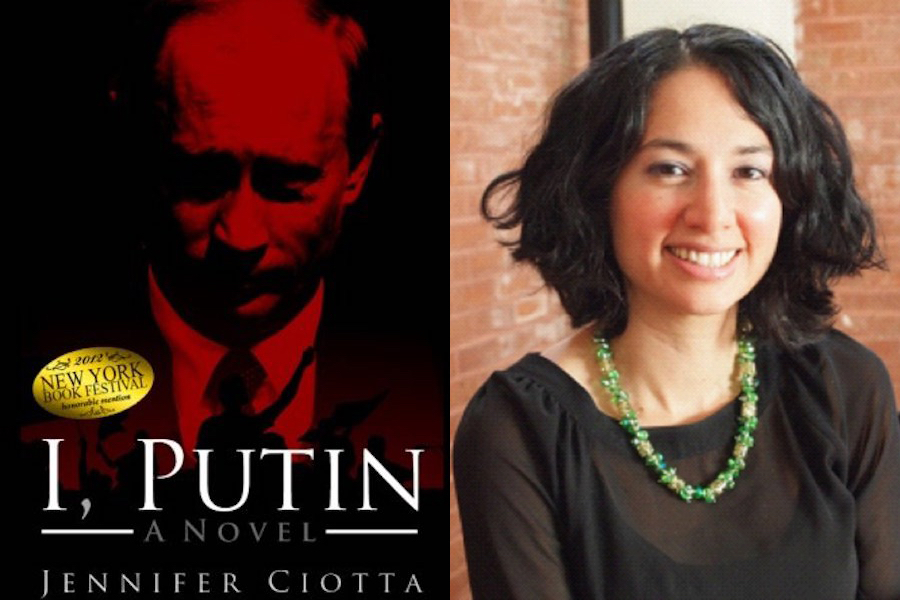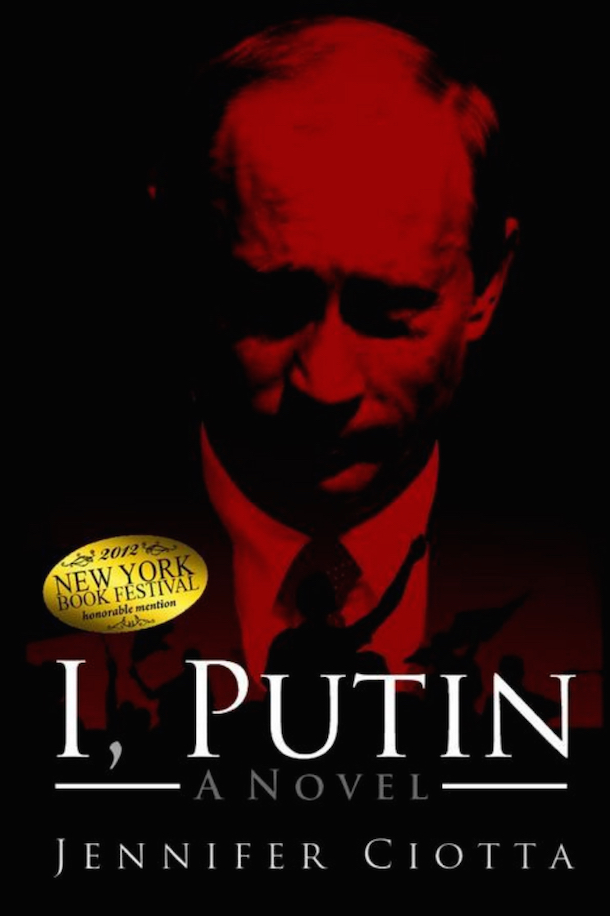
Books
Review of Jennifer Ciotta’s ‘I, Putin’
Russian President Vladimir Putin is difficult to pigeonhole as a world leader and Jennifer Ciotta’s I, Putin illustrates this. He was successful in guiding Russia out of economic despair following years of mismanagement that characterized the Yeltsin years shortly after the collapse of the Soviet Union and he has been able to rein in the influence of the oligarchs who amassed such wealth when Russian industries went on the auction block in the 1990s. At the same time, Russia amassed huge wealth through its oil and natural gas reserves, which has more or less shielded Russia from the same economic turmoil that has ravaged Greece, Italy and many other Western nations.
With Putin at the helm or his predecessor, Dmitry Medvedev, Russia has cherry-picked when to support the United States and others internationally, while instead focusing on strengthening Russia regardless of how Russia is perceived internationally. Putin’s presidency has also been shaped by wars and disaster. The Beslan school massacre in 2004, the wars in Chechnya and the Kursk nuclear submarine disaster in 2000, shortly before Putin was to celebrate his 100th day as president, have guided Putin’s headstrong decision to rebuild Russia and free it from dependency on the United States and European states.
Jennifer Ciotta’s I, Putin, for sale on Amazon and Barnes & Noble, provides some answers as to why, for example, Putin avoided seeking international assistance in rescuing the sailors of the Kursk, the Russian nuclear submarine that suffered from two massive explosions in August of 2000.
The mighty Kursk was billed as the Russian equivalent to the RMS Titanic. Sinkable, unthinkable, until it happened and the nuclear submarine sank to the bottom of the Barents Sea with 118 sailors on board with over two dozen still alive who could have theoretically been rescued had Putin acted sooner. But that is the fine line that Putin was forced to walk which is successfully described by the author.
Putin’s dilemma all along as the events unfolded was whether to turn to the international community for help in rescuing the sailors, which in Putin’s estimate would have portrayed Russia as weak, or to allow the sailors to die.

I, Putin is retold through the experiences of Lieutenant Captain Dmitry Kolesnikov, a sailor onboard the Kursk, Vladimir Putin, Mr. Kolesnikov’s father and Gosha Golubev, Putin’s personal aide. Former U.S. President, Bill Clinton, and other characters do enter the story at various points and serve to further our understanding of the events surrounding the sinking of the Kursk and why Putin chose to not turn to Norway or others in order to rescue the sailors. The plight of the remaining sailors, stuck in near absolute darkness, suffering from cold, hunger and organ failures, is retold through Dmitry Kolesnikov, as he penned a letter to his wife, Olga. Putin, as he does throughout the book, sums up the decay of the once mighty Russia midway through Ciotta’s book by suggesting to himself:
I do not have the technology to save the sailors. I do not have the right to expose our military defense—to endanger every citizen in Russia for 118 sailors. In the Soviet Union, we would’ve never allowed another country to enter a nuclear submarine, even if it meant saving lives. The sailors would have died quickly, without any media exposure. But this is a different era. Imagine if we spend millions on rescue personnel and equipment from Norway or the UK. Then we plunge into the Barents and enter the submarine. Only to find out all the sailors have died in the initial blasts. So what’s more detrimental? Risking the lives of our rescue workers to save sailors who are probably dead…or accepting aid from an adversary country that will exploit our naval secrets? Russia is ruined both ways.
To my surprise, Gospodin Putin (Mr. Putin or President Putin) comes across as likeable, but cold and calculating. What drives him, what shaped him as a person and finally, what can explain his decision not to accept international assistance is explained by the author’s retelling of Putin’s childhood and the almost comical retelling of his beginnings as a judo expert on up through his assignments with the KGB in Dresden, Germany versus his first choice, Berlin. The strength of I, Putin is its narrative. Biographies can be dull affairs, but I, Putin was anything but dull. But with that said it is important to emphasize that I, Putin is fiction. But while several of the plot points have been created by the author, they do help give readers a better understanding of Putin, from a Russian point of view.
After reading Jennifer Ciotta’s I, Putin and her “Acknowledgements” in the very beginning, it is obvious that her account of the Kursk disaster was thoroughly researched. A disaster where lives could have been saved had Vladimir Putin early on accepted help from the international community.

